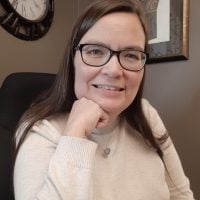As another Earth Day approaches and events are planned all over the world to celebrate our planet, it’s very important that we take a minute to acknowledge those who kicked off such an amazing phenomenon. Who was the first to stick their hand up and say “Hey! Hey! What we’re doing to the earth simply isn’t right!”
Every time you pick up a piece of litter and throw it in the trash bin, or opt for a canvas shopping bag instead of a plastic one, or even just glance up to see that bird singing in the top of the tree, say hello to Rachel.
Rachel Carson, quite simply, is the person who opened our eyes and our back doors and showed us what our natural world is really all about.
What Did Rachel Carson Do?
You see, once upon a time, an alarmingly short time ago, people viewed their interactions with the natural world in a fairly narrow way. An effort to eliminate pests, kill off vermin, or improve agricultural methods was just that. Nothing else. If it met the goal, then job well done. The End.
It was Rachel who taught us that this was not the end at all, but just the beginning of a long journey.
How Did She Do That?
Rachel was a marine biologist with a tremendous gift for writing. She wrote several books in her lifetime, mostly about the sea and its wonders. And all were beautifully written and widely acclaimed.
But there was another book she wrote that wasn’t about the sea at all. People still talk about it even all these years later. It was the one that knocked the stuffing out of our environmental mindset.
Silent Spring
Her book, Silent Spring, published in 1962, was about the unlikely topic of DDT.
This chemical compound was developed in the 1870s and was recognized as an effective insecticide in the late 1930s. It was used during World War II to eliminate insects carrying serious diseases like malaria and typhus. It was so effective that its use was spread to fields, gardens, and even homes. It’s a documented fact that DDT was also used on children’s heads to manage lice infestations.
So, it was doing its job and that was all that mattered right? In fact, as the first widespread insecticide and a solution to many infestation problems, it was greatly praised and touted.
But Rachel Carson proposed a whole other idea. Through her deep research and studies, she showed that the chemical was not just killing the insects. It was also contaminating soil, water, and food. It was being passed from one creature to the next through the food chain, and even from mother to child.
A Revolution
In other words, Rachel Carson was one of the first people to help us understand that our environment is actually a massive web, with everything impacting everything else in some way, even if was indirectly or by several degrees. We began to understand that when you spray that mosquito, it carries those chemicals along to birds, reptiles, and any other creature that will dine on bugs. Then to any animal that dines on those birds and reptiles. Or to their young. And the DDT will also spread to any creature using the soil, water, and air in the vicinity.
Including human beings.
A Changed World
Well, now that the world knew this, how could we possibly continue the way we had been? Now every innovation and advance had to be held up against a new measuring rod.
And for this we can be eternally grateful.
Okay, we still have our problems. Pretty big ones, in fact. And we probably will for some time to come.
But we also have a whole lot of great things going on, including the activities of the United States Environmental Protection Agency and hosts of other organizations that put tremendous amounts of time and effort into fixing our mistakes in the areas of ocean pollution, wildlife protection, and global warming among other things.
What it All Means
So, Rachel Carson started out trying to educate the public about a single insecticide (which has been banned, by the way), but she wound up teaching us so much more than that. She showed us things that have lead to the environmental revolution that we are living today.
After all, were it not for her, you may never have taken a moment to consider the impact of that plastic bag on that family of humpback whales 10,000 miles away.
After a struggle with illness, Rachel Carson passed away in 1964, missing the first Earth Day by six years. But it was because of her dedication to the public’s awareness and understanding that such a phenomenal day was ever conceived of in the first place.
So, long may Earth Day live, and may we all continue to honour the green spirit of Rachel Carson.


 Share on bsky
Share on bsky




Read 0 comments and reply